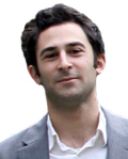Therapy
Live(ish) from the APS Convention Part 2
Debating the future of clinical psychology
Posted May 30, 2010
Two programs on the future of clinical psychology highlighted The Headcase's second day at the APS Convention (read about Day 1 here).
The first was a talk delivered by Alan Kazdin of Yale, who argued that clinical psychology must undergo a drastic reformation if it truly wants to reduce the burden of mental illness around the world:
"If the goal is to reach a small number, and to exclude those in need, particularly those in minority groups, particularly those in rural areas, especially those who are elderly, especially those who are young—if that's our goal, we're doing great," Kazdin said in jest.
More from my brief write-up of the talk here. And a 5-minute clip here:
The second program was an excellent panel debate on the recent, controversial report calling for a new system of accrediting clinical psychology training programs. I wrote about the debate a few months ago for the L.A. Times. Briefly put, the report's authors fear that many training programs lack scientific rigor, and that, as a result, many mental health practitioners aren't using the best possible treatment methods.
The panel at the APS Convention featured one of these authors, Richard McFall, alongside Steven Breckler of the American Psychological Association, who played his role as opponent of the proposed accreditation system well:
"Our view is there are far more productive avenues to explore in addressing the problem than opening the Pandora's box of yet another accreditation system," Breckler said.
That from my panel recap, here.
Unfortunately the group, which also included Antonette Zeiss of the U.S. Department of Veteran Affairs and Bruce Cuthbert of the National Institute of Mental Health, was just starting to heat up when it ran out of time. But Cuthbert had time to propose an interesting theory on the future role of doctoral-level clinical psychologists:
"It could be that one of the roles for the clinical psychologist of the future is not so much as an hourly wage person delivering one-on-one therapy but rather having the skills to organize, coordinate, and direct teams of professionals," Cuthbert said.
In such a system, those most up-to-speed with the research—presumably the doctoral graduates—would ensure that a team of therapists was familiar with the latest treatment methods. Not necessarily a crowd-pleasing idea, but the one thing the panel agreed on was that pleasing clinical psychologists should be secondary to helping the public.
--
Follow me on twitter: e_jaffe


